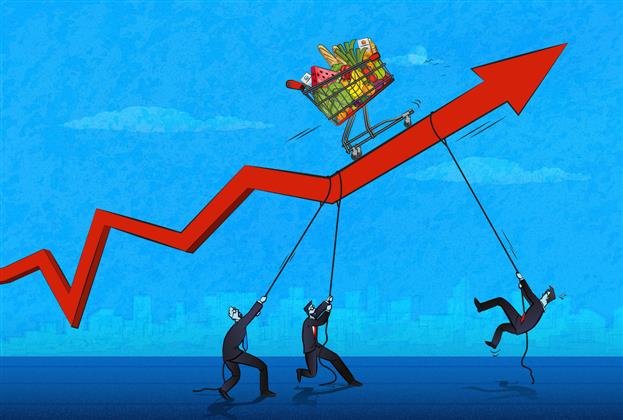Amid growing economic turmoil and a resurgence of political finger-pointing, Europe is experiencing a wave of public discontent. Several countries in Europe are witnessing civil unrest as citizens take to the streets to protest their governments’ handling of skyrocketing inflation and rising prices. Europe, often portrayed as a Canary to America’s coal mine, seems to be demonstrating what not to do in the face of economic challenges, as politicians grapple with public anger and frustration.
Two notable speeches this week have shed light on the simmering tensions. First, a senior UK Treasury adviser, Karen Work, delivered a controversial address, claiming that the UK is on the brink of a recession because British workers possess too much bargaining power, resulting in higher wages. Work expressed a longing for the days when the UK could easily import overseas workers to suppress wages. This stance, however, contradicts the reality that UK wages have lagged behind inflation by a quarter in the past two years, leaving workers struggling to keep up with rising costs. Work’s call for lower wages as a solution to inflation raises concerns about the economic impact on workers.
Furthermore, Work endorsed the idea of setting a higher inflation target, possibly 3%, a proposal gaining traction both in the UK and the United States. This approach is concerning for many, as central banks appear inclined to pass on the costs of inflation to the public.
European Central Bank President, Christine Lagarde, also raised eyebrows with her recent statement that inflation had seemingly appeared “out of nowhere,” despite trillions of dollars being pumped into the economy through money printing. Central bankers often shift blame for inflation onto various factors, frequently targeting workers or businesses for greediness, depending on the political landscape. This pattern of scapegoating diverts attention from the role of monetary policy in fueling inflation, as Milton Friedman famously noted that inflation is primarily a monetary phenomenon.
The common denominator in Europe appears to be panic-driven interest rate hikes aimed at curbing inflation. However, this strategy risks pushing both the UK and the EU into recession. The silver lining in this dire situation is the mounting anger among European citizens, who are increasingly frustrated and disillusioned with their governments’ economic policies.
In addition to this public discontent, Europe’s multi-party systems and flexible election calendars might expedite the rise of populist parties, potentially gaining power earlier than their counterparts in the United States. These parties could serve as a beacon for the millions of Europeans grappling with economic challenges and seeking alternatives to the status quo.
As Europe navigates these turbulent economic waters, the world watches closely, waiting to see how the continent’s leaders address the mounting anger and economic woes, and whether populist movements will find increasing support among disenchanted voters. The situation in Europe remains dynamic, and we will continue to provide updates as it unfolds. Stay tuned for further developments.

